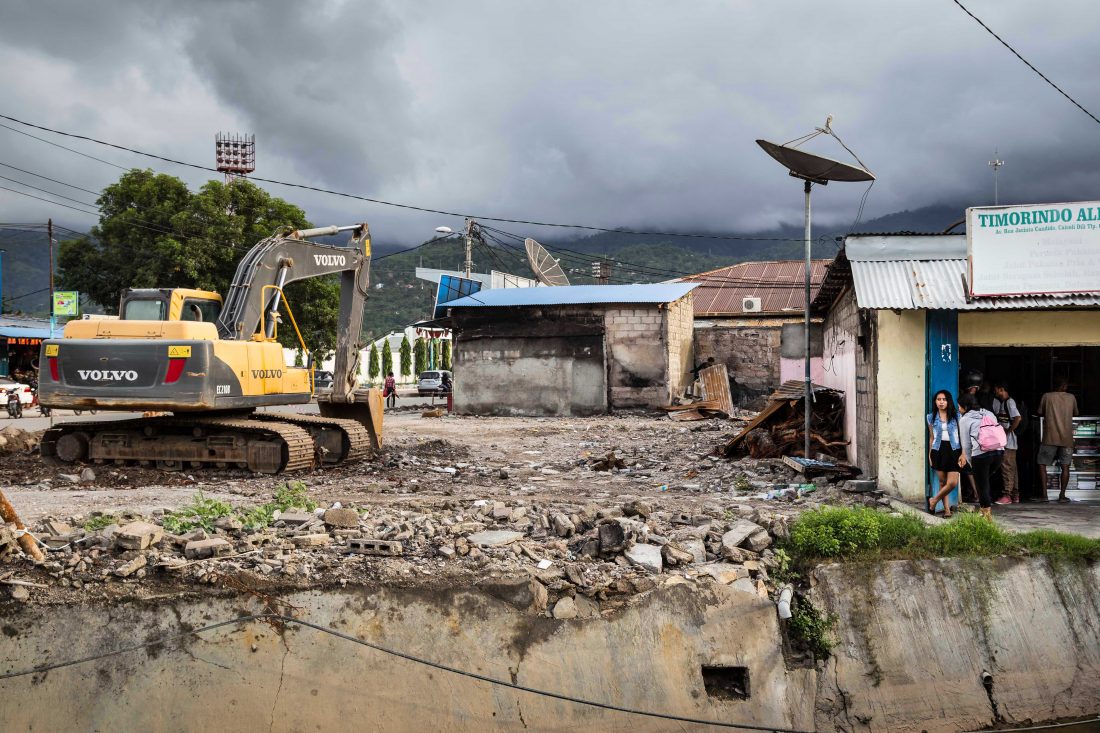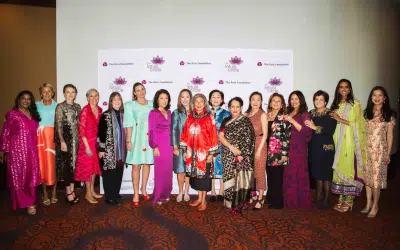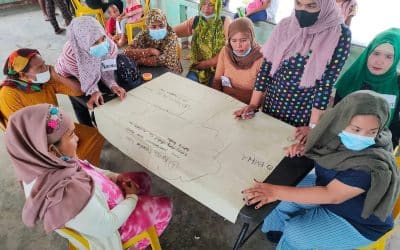InAsia
Insights and Analysis
Can a New Law Help Timor-Leste’s Land Rights Crisis?
January 18, 2017
Voters in Timor-Leste will head to the polls twice this year—for presidential elections in March and parliamentary elections in July—in what will be the first such elections to be held since the UN Mission departed in 2012. The next government will be faced with dwindling oil reserves and the urgent need to switch from a petroleum fund-based economy to one that is more diversified and sustainable. While these issues will factor heavily on the minds of Timor-Leste’s citizens on election day, another issue could factor as a potentially even bigger priority: land.
Fifteen years after independence from Indonesian occupation, Timor-Leste still lacks a legal basis for determining land ownership. At the time of independence, post-colonial and post-conflict legacies resulted in a variety of challenges, including landlessness and forced displacement caused by Indonesian occupation, disputes caused by the massive land occupation that occurred after the 1999 violence, and the legitimacy (or lack thereof) of formal land titles issued during the Portuguese and Indonesian administrations.

Fifteen years after independence from Indonesian occupation, Timor-Leste still lacks a legal basis for determining land ownership. This is particularly a problem for residents in Dili, where a quarter of the country’s 1.2 million people live. Photo/Bernardo Almeida
Most Timorese in the countryside access and hold land through customary and informal systems, which have no legal recognition. Only a minority ever got access to formal land titles during the Portuguese or Indonesian administrations. This situation is further complicated by urban migration, especially to Dili, where without mechanisms to legally access land, people can only rely on informal schemes. Land occupation (sometimes peaceful, other times violent) and informal arrangements are common; even those that acquire land from formal owners do not have the legal mechanisms to securely formalize an acquisition.
In 2012, Parliament approved a draft land law to clarify the current confusion regarding land rights by establishing a set of criteria to determine initial ownership. However, after being vetoed by then-President Ramos Horta, the law has been going back and forth between the government and parliament, and is currently once again under debate. Initial versions of the draft included provisions to protect those households from eviction that do not fulfil the criteria of the law for land ownership recognition and cannot afford resettlement. But this protection has been removed in the current draft, and it is not clear how many people could face eviction.
Despite the high stakes involved, there is little reliable, consistent, and independently collected data about land. The Asia Foundation and the Van Vollenhoven Institute in Leiden University this week released a new survey that provides quantitative data regarding land-related issues in Timor-Leste. The survey, which interviewed 1,152 households in the municipalities of Ainaro, Ermera, and Dili, will assist the government and parliament in developing evidence-based land policies and legislation.
Increased Urban Migration in Dili and fears of Eviction
Any new legislation will have the greatest effect on the capital, Dili, where a quarter of the country’s 1.2 million people live. Dili has seen a boom in urban migration, with 39 percent of new households established after 1999 (and 21% after 2008). Despite high levels of recent arrivals, 87 percent of survey respondents in Dili considered that they own the land where they live, even though almost half also say they do not have a land title. Without a land title, land rights are not recognized under the current land law, leaving approximately 101,000 people without any legal tenure security.

As more people migrate to Timor-Leste’s towns to find work, fears of eviction is on the rise. Photo/Bernardo Almeida
Despite high levels of perceived ownership, and more than half of respondents in Dili saying they have a land title, the majority of households in Dili have low perceived tenure security, with 70 percent fearing in higher or lower degrees that they will be evicted in the next five years. Such a high level of fear seems to indicate a low trust in the quality of their documents combined with recent, ongoing state dispossessions that have further flamed widespread fears of land-related instability and of social and political exclusion.
Ownership and Timorese Land Practices
The concept of “ownership” perceived by the great majority of citizens is very different from western-like definitions of ownership, in which the owner can freely transfer and avail of the property. Despite claiming to be the owners of the land, the majority of respondents reported not being allowed to transact or rent or lease the property. Many civil society organizations following the land debate are concerned that if the land reform law passes, the disruption of the traditional social and cultural fabric that binds villages together may have a greater negative impact than the current lack of titling.
Gender and Access to Land and Housing
The survey found that in all the target municipalities, men have greater access to and ownership of land and housing. However, there are several cases where the land is claimed to be owned individually by men, but the house built on the land is jointly owned by the couple. Any process of land registration or titling that does not incorporate clear measures to mitigate gender discrimination will most likely reinforce these inequalities and create another structural barrier for women to own land.
Exclusion and Dispossession
Under the current draft law, the survey found that a least a quarter of the population in urban Dili (63,000) would not have any land rights recognized by law and will not be entitled to any compensation. This number could increase substantially depending on the strictness of assessing legal validity of land titles and the means of proof accepted.
The lack of any protection against evictions in the current draft law will leave these households without any social protection and may cause further marginalization due to difficulties in assessing equivalent land. Clearly, evicting a quarter of the population is not a viable solution to the land problem in Dili, and would cause new problems, including potential violence and disruption to the economy.
While new land legislation is urgently needed in Timor-Leste, it’s critical that it protects the rights and security of its citizens, while also helping to provide increased confidence to businesses for increased investments.
Todd Wassel is The Asia Foundation’s deputy country representative in Timor-Leste and Bernardo Almeida is preparing his PhD thesis at the Van Vollenhoven Institute of Leiden University Law School, focusing on the development of the formal land tenure system in Timor-Leste. They are co-authors of the “Survey on Access to Land, Tenure Security, and Land Conflicts in Timor-Leste.” The views and opinions expressed here are those of the authors and not those of The Asia Foundation or its funders.
About our blog, InAsia
InAsia is posted and distributed every other Wednesday evening, Pacific Time. If you have any questions, please send an email to [email protected].
Contact
For questions about InAsia, or for our cross-post and re-use policy, please send an email to [email protected].The Asia Foundation
465 California St., 9th Floor
San Francisco, CA 94104
The Latest Across Asia
News
April 25, 2024
Program Snapshot
April 18, 2024
News
April 17, 2024

2024 Lotus Leadership Awards
The Lotus Leadership Awards recognize contributions towards gender equality in Asia and the Pacific







0 Comments